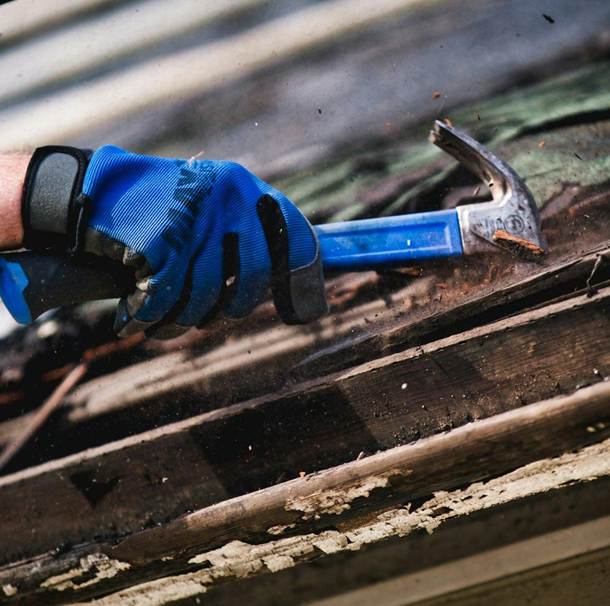The quality of materials and the skill of the workers are both critical for a successful project. Homeowners overlook the importance of hiring the right professionals for the job. The right roofing team can impact the durability, aesthetics, and value of your home.
There are multiple factors that contribute to assembling a competent roofing crew, including their qualifications, experience, and commitment to customer satisfaction. Invest some time in selecting a highly rated team to prevent costly mistakes. Keep reading and see how to achieve the desired roofing results.

Know Your Roofing Needs
Roofing projects are shaped by differing architectural styles, local regulations, and climatic conditions. Homeowners should evaluate their specific needs, which may include roof repair, full replacement, or new construction. Conducting an initial assessment allows you to have informed discussions with potential contractors. Know exactly what materials are best for your home to streamline the selection process.
Understand your budget and narrow down options that fit both your financial situation and the material type that suits your home. Inquire about the lifespan and warranty of materials so you know that you're making a sound investment. The conversation should allow you to determine if the potential contractor can meet your needs and lay the groundwork for a productive partnership.
The Importance of Qualifications and Licensing
Each state has its own licensing requirements for roofing professionals — any contractor you consider should be fully compliant. Hiring roofing contractors that are trusted requires diligence in verifying their qualifications and licenses. A licensed contractor signals a level of expertise and adherence to local building codes. Look into any relevant certifications from recognized industry organizations. These certifications indicate a commitment to best practices and ongoing education in the evolving roofing sector.
Ask for proof of insurance, including liability coverage and workers’ compensation, to protect against potential accidents or damages during the project. If you scrutinize qualifications, you mitigate risks associated with hiring unqualified or inexperienced workers.
Evaluate Experience and Portfolio
When vetting potential contractors, focus on their industry experience, typically reflected in the years they’ve been operating. Established contractors have a track record that includes various projects, which provides insight into the types of jobs they handle. Ask for a portfolio of their previous work to assess the quality and scope of projects similar to yours. This can give you a clearer idea of their style and capabilities.
Pay attention to their familiarity with materials and methods suited for your specific roofing type. Request references from past clients: hearing about others’ experiences can reveal important insights into reliability, professionalism, and workmanship. A well-rounded contractor will provide an impressive portfolio, be able to communicate effectively and work collaboratively with you throughout the project.
Reviews and Reputation
Online reviews and testimonials are valuable resources. Websites such as Yelp, Google Reviews, and Angie's List can provide insights into customer satisfaction. Look for patterns in the reviews, especially regarding work quality, timeliness, and communication skills. A strong reputation in the community is an excellent indicator of reliability and trustworthiness. Be cautious of contractors with minimal reviews or overwhelming negative feedback.
Engage with past customers and provide a first-hand perspective on the contractor’s approach. Engage in local Homeowner Associations or community groups to gather recommendations and warnings. A solid reputation will allow you to feel more comfortable about your choice in contractors, knowing their previous clients’ experiences went well.
Transparent Pricing and Estimates
During the estimate process, all potential costs should be disclosed upfront, including labor, materials, and any additional fees. This transparency prevents misunderstandings that can arise later in the project. Reputable contractors should provide written estimates based on thorough inspections and evaluations of your roofing needs.
Be wary of unusually low bids — they may indicate a lack of quality in materials or craftsmanship. Encourage potential contractors to break down the costs associated with your roofing project. This way, you can review each component and understand where your money is going. A comprehensive estimate will enable you to make informed decisions and avoid surprises that could impact your budget down the line. Trustworthy contractors will gladly discuss their pricing approach and help you feel more informed about what to expect.
Warranties and Insurance
A reliable roofing team will offer warranties that cover both the materials and the workmanship. This guarantee indicates the contractor’s confidence in their capabilities and the materials used. A roofing warranty should last between 20 to 50 years, based on the quality and type of material.
The contractor should carry adequate insurance coverage. This protects both the worker’s safety and your property against unforeseen accidents that might occur during the project. A legitimate roofing company should have both liability insurance and workers' compensation in place. You can request copies of these insurance policies to verify coverage. Trustworthy contractors operate with full transparency regarding their insurance policies and warranties, leaving no room for hidden risks in your investment.

From understanding your specific roofing needs to evaluating contractors’ qualifications, experience, and pricing, each step helps you make an informed decision. Communicate effectively with potential contractors for a partnership that benefits both parties. Prioritize quality over cost in those initial stages to set the foundation for a durable and aesthetic roofing solution that meets your expectations.









